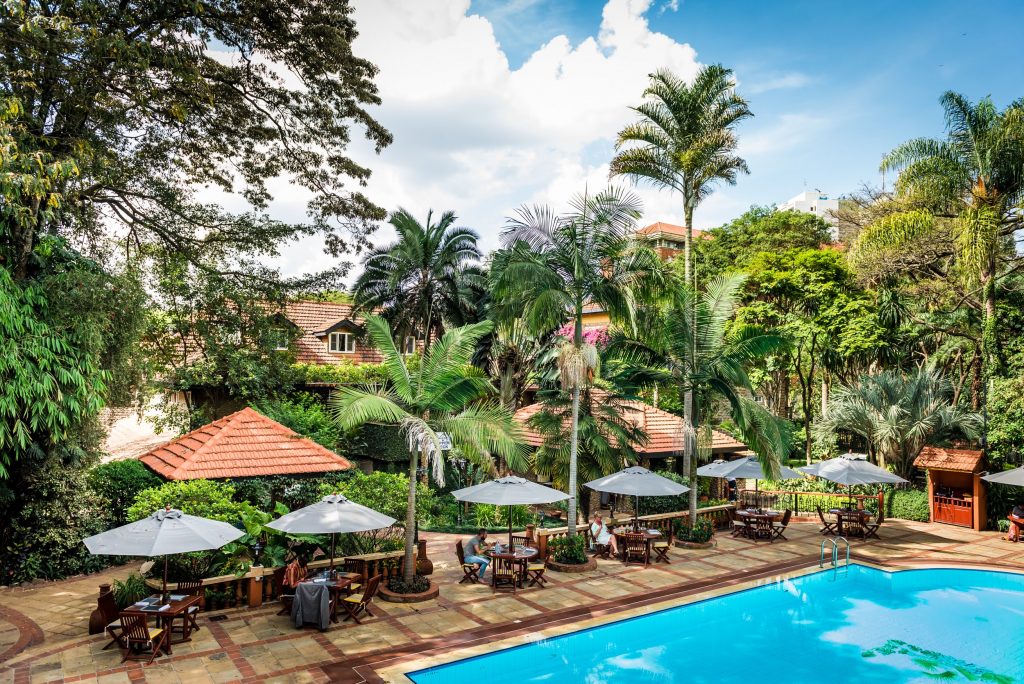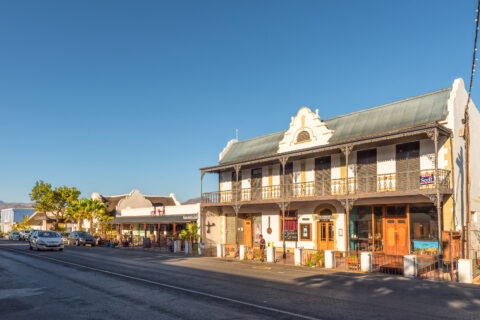Financial Mail Travel
Say Ndiyo To Nairobi
Within a single century, Nairobi has risen from a brackish uninhabited swampland to a thriving modern capital. It is a place of contrasts, a city that never sleeps, bustling with hardworking people who love to play. And it has the bush on its doorstep, a wildness close to the surface. Its energy has spawned an entrepreneurship and innovation culture that make it an East African leader. Cosmopolitan and vibrant, its business acumen is complemented by a distinctive work ethic.
Jesse Githua, CEO of Pong Agencies, a leading Kenyan ICT solutions provider, believes Nairobi’s culture of deal-making and enterprise is due to an active, educated and young populace. He says though that many graduates struggle to find formal jobs and this forces them into entrepreneurship, to put food on the table. “The culture is so ingrained that every other Kenyan, employed or not, has a side-gig,” he says. “They’re known as ‘hustlers,’ which may have negative connotations in the West, but locally is associated with the Kenyan ability to be entrepreneurial and hard-working.”

Gautam Shah, founder of the social enterprise Internet of Elephants, and a National Geographic Fellow, says Nairobi “gets its buzz from the youth – their ambition, their pace of life, and their playfulness”.
Shah, whose company uses scientific data about wildlife and nature to create games and digital experiences that get people to engage with conservation issues, says innovation has always been at the heart of Kenya’s entrepreneurial landscape. It’s invariably about local needs driving local solutions, he says, describing Nairobi’s “Jua Kali” sector as an excellent example of Kenya’s innovation and entrepreneurship culture. Jua Kali is a Swahili term meaning “hot sun”. It was coined from the informal industries and markets that would spring up in open-air markets under Nairobi’s hot sun and so it refers to Kenya’s informal sector which Shah says is renowned for being highly innovative, contributing to four out of five jobs in the country.
The Silicon Savannah
Kenya’s tech scene is among the most vibrant in the world and Nairobi is abuzz because of how highly connected the city is; it has one of the highest internet speeds in the region, with an internet penetration rate above 89%, empowering an entrepreneurial generation to use technology to solve its problems.
“We have several tech spaces such as iHub, Nairobi Garage, Metta and Swahili pot, amongst others,” Githua
says. “These sprang up by the dozens and have encouraged a vibrant tech culture with several young entrepreneurs being recognised globally for their ability to solve global challenges with their technology solutions.”
The government has also been instrumental in providing resources for a tech landscape to be built. “One of the biggest benefits to innovation, especially in terms of ICT was when we got our first set of undersea fibre optic cables about a decade ago,” says Githua. “This government initiative connected Kenya to the rest of the world, bringing faster and cheaper internet connectivity.”

Eugene Mbugua, founder of the hugely successful television production company, Young Rich Television Ltd, also lauds the government efforts in creating a platform for entrepreneurs. He says there’s been a lot of impetus since the appointment of Joe Mucheru, Google’s former Sub-Sahara Africa Lead, as Cabinet Secretary in the Ministry of Information and Communications. “Nairobi is awash with innovative and exciting companies, such as Sendy, a local logistics company, and Little, our answer to Uber,” he says. “We have several incubation hubs where dozens of young innovators are churning out great solutions.”
Dutch-born Sanne Meijboom founded the companies I like Local and Impact Nomads and has spent much of her time in Nairobi, connecting with thought leaders, business owners and locals. I like Local was declared the world’s top rural tourism development startup at the United Nations World Tourism Organization’s Global Startup Competition last January. This competition identifies and rewards new companies that will lead the transformation of the global tourism sector within the framework of innovation and sustainability.
Meijboom believes Nairobi is an ideal “playground” for new ideas that need to be tested in rural or highly disadvantaged communities, because these are on your doorstep, in and around the city. And beyond being a grassroots innovations hub, she says that Kenya is also emerging as a fruitful place for innovation and for multinational companies to be based. The likes of Microsoft, Google and IBM have already installed regional headquarters there.
Kick back in Kenya’s capital
Nairobi National Park is unique because it’s located in the middle of the city – you spot animals when your plane comes in to land. “Adjacent the park, Carnivore serves all-you-can-eat meats roasted in true Kenyan fashion,” says Jesse Githua. “Brunch at Wasp and Sprout, and order a Nyatipa or Simpilis craft beer at Brew Bistro and Lounge. Pango Brasserie at Fairview Hotel [that’s its pool, pictured right] is excellent for romantic meals or business lunches.”

Stefan Janse van Rensburg, GM at Fairview Hotel, recommends shopping at the Maasai Market, Utamaduni Craft Centre and Kazuri Beads Factory. Other unique attractions are the world-famous Giraffe Centre, the David Sheldrick Elephant Orphanage and Karura Forest, all special nature experiences on your doorstep.
The Nairobi National Museum is also a hit, he says. Of course, Fairview is also among the loveliest places to bed down in the city – it’s a true oasis right in the heart of it all. Both Fairview and the adjacent Town Lodge Upper Hill afford access to relaxing gardens after facing Nairobi’s traffic, which can be challenging. Book for either of these hotels at clhg.com.
Bush break or island escape?
Nairobi, as a stop-off, is ideal before heading on safari, or to the coast.
June to August sees the massive migration across the Masai Mara – hundreds of thousands of wildebeest and other herd animals with a variety of predators on their tails, plus crocodiles waiting to ambush them at river crossings. This is possibly the most alluring event for travellers to Kenya.
But there are abundant game reserves besides the Serengeti-adjacent Masai Mara. A lesser-known favourite is Aberdares National Park, where you can self-drive searching for elephants and leopards amid incredible scenery.
Island getaways are possible, too. Lamu, is located off the coast in Kenya’s far north. It’s quite unique in terms of culture and atmosphere. People get around by donkey or boat. The entire island is a UNESCO World Heritage Site, and Swahili culture is rigorously preserved. It has some lovely beaches (Shela is recommended) and plenty of beautifully restored historic houses available to rent as villas, or transformed into guesthouses and small hotels.
Kilifi, not an island, but a coastal town north of Mombasa, is Sanne Meijboom’s choice for a getaway from the city. “Because of its laid-back, creative and non-touristy vibe – 25 years from now, it could be Goa,” she says.





